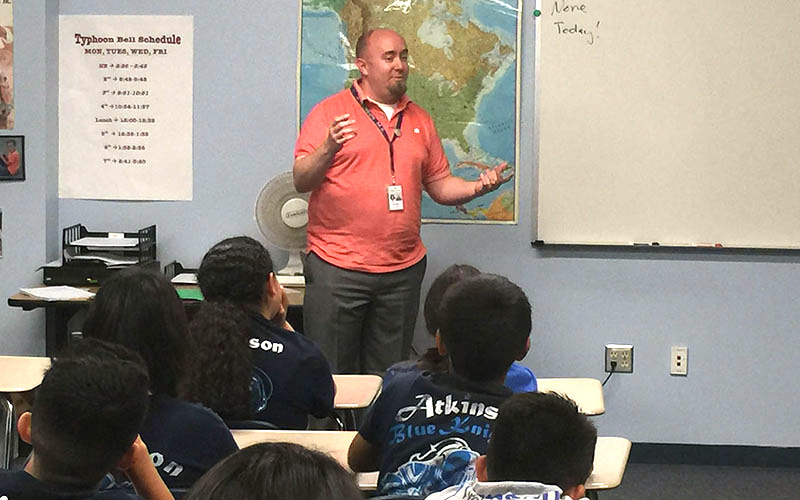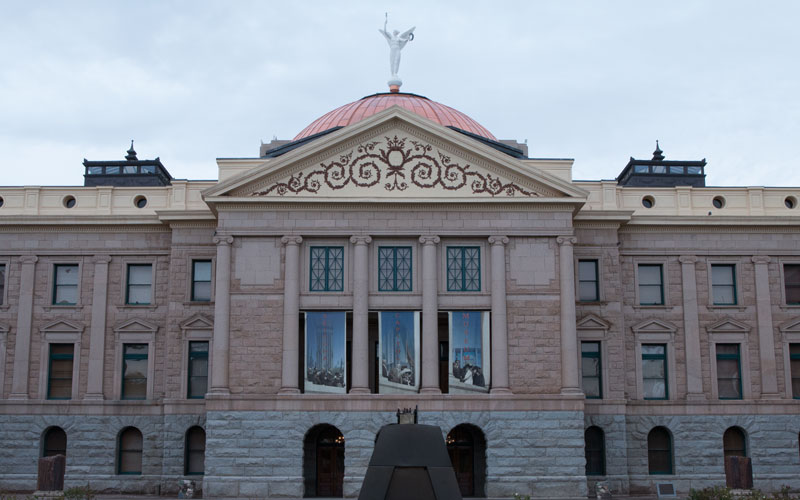Arizona House and Senate Democrats announced a plan they say would provide public schools an additional $3.8 billion over 10 years without raising taxes.
Leaders say their plan addresses underfunding as well as hundreds of millions of dollars courts say the state owes for failing to make inflation adjustments to school funding as required by a voter-approved law. The first installment of the latter has been set at more than $330 million, and the total could reach $1.6 billion.
“This is not something that we can sweep under the rug,” said Sen. Martín Quezada, D-Phoenix, the Senate minority whip. “This has to get resolved, and this has to get resolved sooner rather than later because it’s going to cost us more money the longer we delay this.”
Democratic leaders also say their plan wouldn’t tap proceeds from state trust land, which is the principal component of Gov. Doug Ducey’s school-funding plan.
Rep. Paul Boyer, R-Phoenix, chairman of the House Education Committee, said he agrees with the Democrats’ desire to settle the school-funding lawsuit and not raise taxes, but he called the plan unsustainable and likely to lead to taxes.
Daniel Ruiz, a spokesman for Ducey, called the proposal “essentially a spending plan.”
“It doesn’t provide for the revenue uncertainty that will come possibly 10 years down the line as we move forward,” he said.
Quezada said the plan would use existing revenues and leave the state’s rainy day fund intact.
“It’s not a spending plan,” Quezada said. “This is a complying-with-a-voter-mandate-and-complying-with-court-orders plan.”
The Democratic plan comes after multiple proposals from Republican leaders – who are pushing for funding solutions that don’t require taxes.
Ducey wants to tap additional revenues from the state land trust. Senate President Andy Biggs, R-Gilbert, and House Speaker David Gowan, R-Sierra Vista, suggested allocating money from one of the state’s early childhood programs.
Neither responded to requests for comment Tuesday.
The Democrats said their $3.8 billion funding plan would get $823 million in revenue from halting increases in scholarships to private schools. Tax credits for corporate school tuition organizations (STOs) have been increasing 20 percent per year, they said.
Ruiz said freezing that expansion “hurts parents who care about their children’s education.”
Julie Erfle, executive director of ProgressNow Arizona, group that advocates for progressive causes, called that change long overdue.
“Why are we allowing those contributions for private schools to increase by large amounts every year, and yet we’re not OK with funding public schools?” she said.
Erfle led a Sept. 3 rally that called on the governor to call a special session and pay schools.
Ducey has dismissed those demands in favor of his state land trust plan, which would require voter approval.
“We are moving forward and look forward to anyone that can join us,” Ruiz said.
Quezada said Democrats haven’t ruled out the possibility of tapping the state land trust, but he said the court-ordered funding must be addressed as soon as possible.
Boyer, who advocates for Ducey’s plan, said there won’t need to be a wait if a special session is called for the land trust proposal.
“We could have an election in January,” he said.
He said that would allow schools to kickstart the process of hiring teachers for the next year.
Andrew Morrill, president of the Arizona Education Association, the state’s largest teachers union, said there is a clear teacher shortage, with thousands of actively certified teachers staying out of their profession.
“It is absolutely crippling right now … They simply choose not to work under the current conditions, and that includes compensation but not just compensation,” he said.
Morrill said the Democratic funding plan appears sustainable.
“The idea is to consider all legitimate proposals and put people at the table to come to some agreement as soon as possible,” he said.
The Democratic plan wouldn’t require voter approval.
Superintendent of Public Instruction Diane Douglas was to announce details of her proposed funding plan Thursday, Oct. 1. She has advocated for using the state’s general fund and possibly additional land trust funds.


